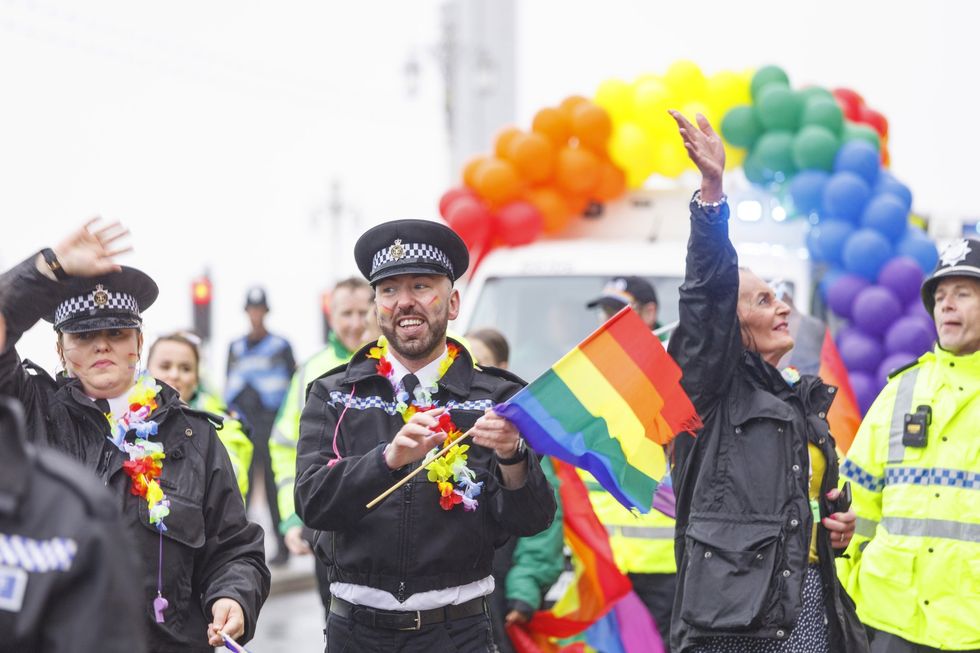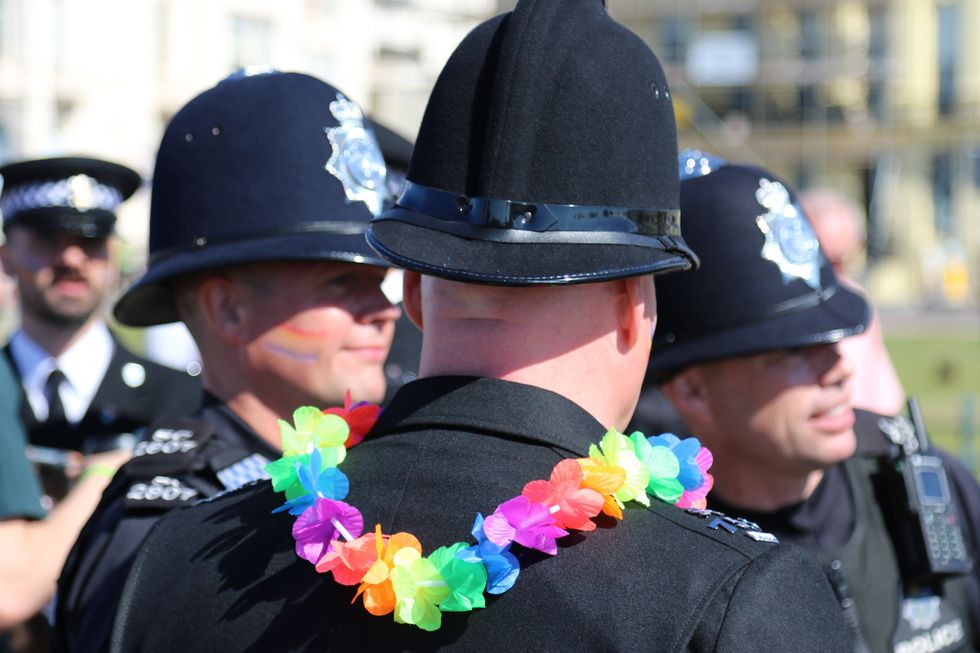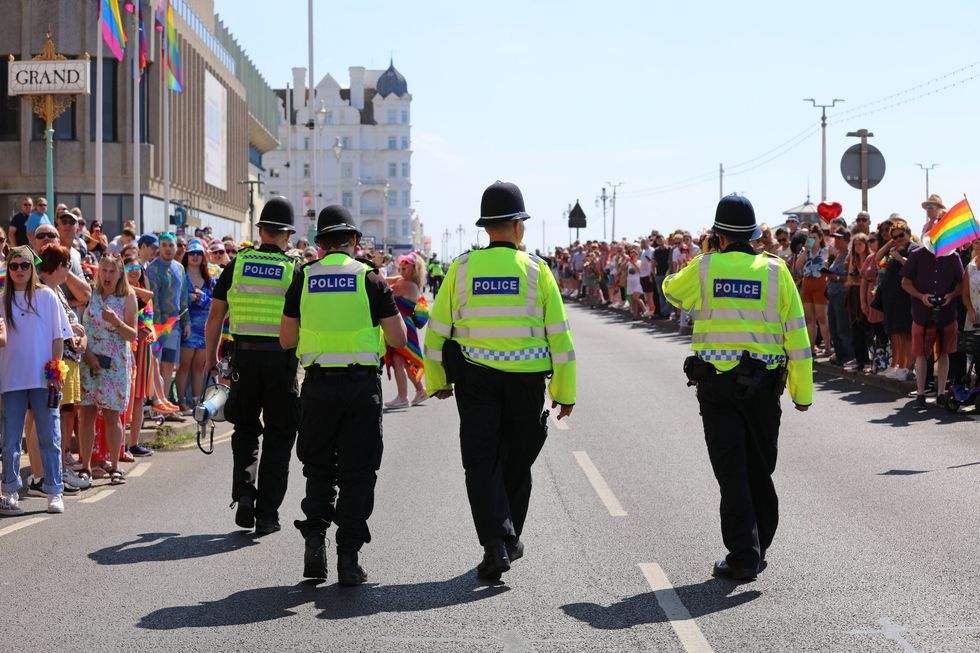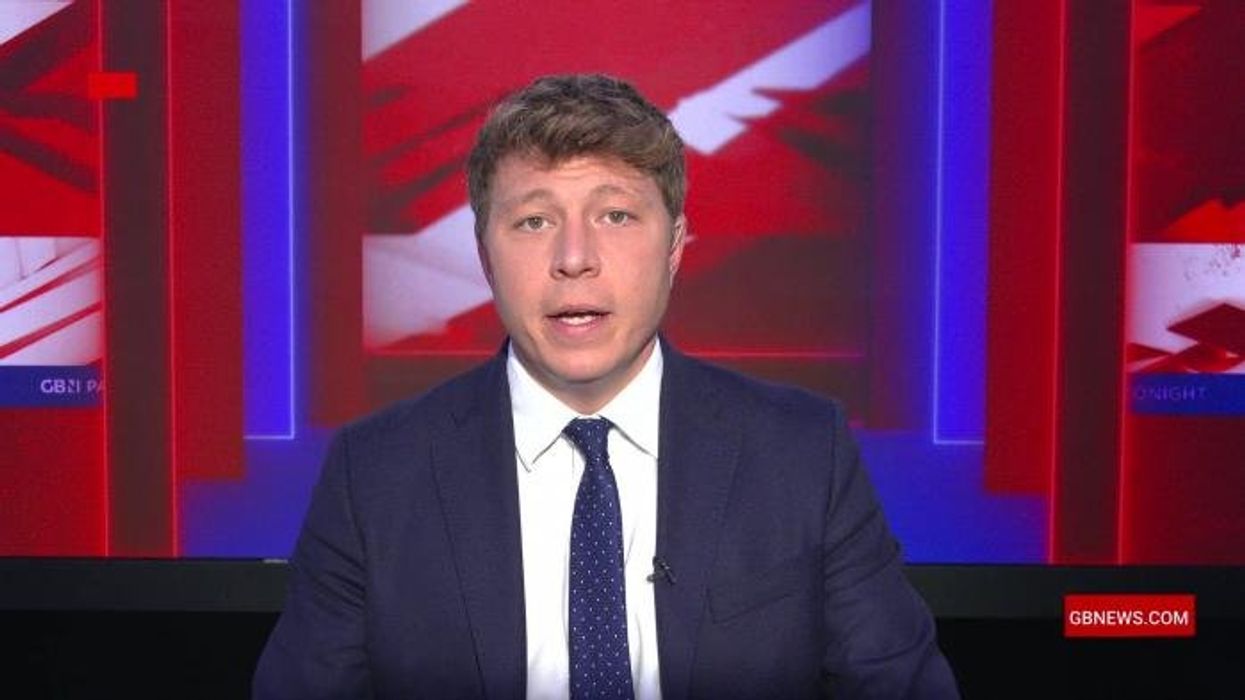Police watchdog faces legal action for 'trans bias at Pride march'
He has sent a pre-action letter to the watchdog, warning that its engagement in Pride events could be unlawful
Don't Miss
Most Read
Trending on GB News
A former policeman is taking legal action against the UK’s police watchdog, accusing it of abandoning its neutrality by supporting Pride events.
Harry Miller claims the Independent Office for Police Conduct, IOPC, which investigates complaints about police officers, is taking sides on the controversial issue of gender identity by marching in Pride events.
The landmark case could have repercussions for other bodies with a duty of impartiality, such as the BBC, as they engage with the LGBTQ+ movement.
Mr Miller argues that its involvement in Pride events makes the watchdog look biased and undermines public trust in its ability to fairly handle complaints.
TRENDING
Stories
Videos
Your Say
He has sent a pre-action letter to the watchdog, warning that its engagement in Pride events could be unlawful.
The letter demands it stop supporting Pride and any other events promoting gender ideology.
It also claims such actions violate the duty of impartiality that public bodies like it are meant to uphold.
Paul Conrathe, partner at Conrathe Gardner LLP, acting for Mr Miller, said: "The IOPC has marched in Pride London, and to do that will have had to sign up to the Pride Pledge ‘to be proactive in their stance on anti-racism, gender equality, disability inclusion and all parts of the LGBT+ communities and to provide evidence of their work in championing diversity equality and inclusion with regards to … gender identity.

A former policeman is taking legal action against the UK’s police watchdog, accusing it of abandoning its neutrality by supporting Pride events
|GETTY
He added: "By supporting Pride events in IOPC t-shirts and posing in front of a Pride Progress flag carrying the IOPC logo, the IOPC has abandoned any semblance of impartiality... These actions patently give the public the impression that the police support trans causes, which are based on the deeply contested issue of gender ideology."
Mr Conrathe said: "Pride is a political cause, and the IOPC should not be supporting it….The neutrality of the British police is lost if they are supporting political organisations."
Claimant Mr Miller stated: "Pride is political. Its symbols, flags, and slogans are political.
"It is irrelevant that Pride is also a celebration. By way of comparison, The Orange Parade is a celebration of Protestantism, but no police officer would wave an orange flag or lace their boots with orange laces to signal support to the Protestant community."
The legal action follows a landmark ruling earlier this year where the High Court ruled uniformed officers in Northumbria police were wrong to march in Pride events, as this showed support for the view that people could change their gender, breaching their duty of impartiality.
LATEST DEVELOPMENTS:

Harry Miller claims the Independent Office for Police Conduct, IOPC, which investigates complaints about police officers, is taking sides on the controversial issue of gender identity by marching in Pride events
|GETTY
The claimant in this case, Lindsay Smith, a gender-critical lesbian who believes sex is immutable, alleged the event supported an ideology that gender can be chosen.
The court agreed, ruling that the police’s participation gave the impression they were taking sides on a contentious issue.
Although lawyers say the IOPC has denied having a policy or practice of attending, participating in, and publicly supporting Pride events, the pre-action letter maintains it has a history of doing so.
It highlights various Pride events with staff members attending in IOPC-branded t-shirts and standing in front of Pride flags.

Mr Miller argues that its involvement in Pride events makes the watchdog look biased and undermines public trust in its ability to fairly handle complaints
|GETTY
Mr Miller’s legal team is now waiting for the IOPC’s response. Mr Miller intends to proceed with a formal judicial review.
This could force the courts to rule on whether public bodies like the IOPC can support political movements without compromising their neutrality.
An IOPC spokesperson said: "We received notice of a claim for judicial review being brought against the IOPC last week and we will be responding within the timeframes required."
Our Standards: The GB News Editorial Charter
More From GB News











